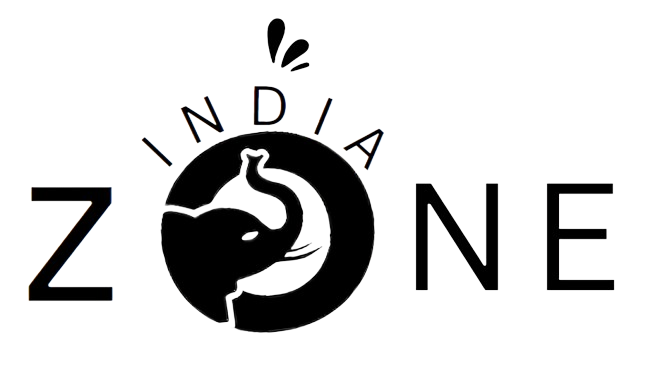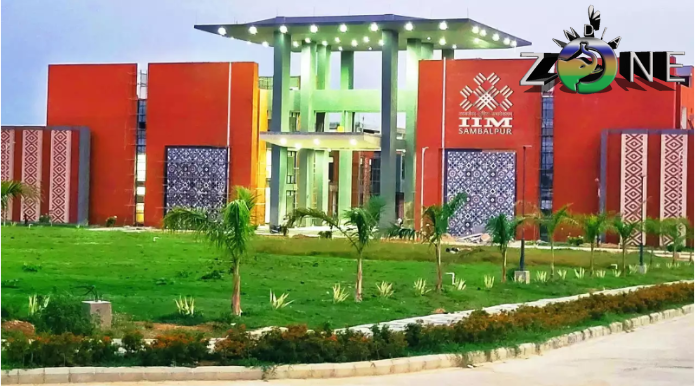
Science Po is an exemplary university, being placed third in the coveted Quacquarelli Symonds (QS) rankings for Politics and International Studies. This esteemed French public institution has chosen not to open a physical campus in India, despite its extraordinary reputation. Rather, it seeks to strengthen ties with Indian academic institutions by means of partnerships and strategic collaborations.
In keeping with the audacious plan of French President Emmanuel Macron to admit 30,000 Indian students to France by 2030, Science Po is dedicated to helping Indian students have more chances. The institution is aggressively working to increase the number of Indian students who come to school in the upcoming academic year in order to realize this goal. Science Po aims to establish a friendly and supportive atmosphere for Indian students who want to study overseas by utilizing its prestigious reputation and academic programs.
Science Po wants to enhance its academic community and contribute to the international exchange of ideas and knowledge through these cooperative projects and endeavors. The university is unwavering in its commitment to giving students unmatched educational experiences and equipping them to become future leaders in a world that is becoming more linked by embracing diversity and creating international relationships.
With a dual degree program in technology and international affairs, Science Po is ready to take a bold step forward in its tradition of academic achievement and innovation. This progressive move demonstrates the university’s dedication to provide students with the multidisciplinary knowledge and abilities needed to successfully navigate the complexity of today’s global environment.
Science Po seeks to close the gap between technology and international affairs by expanding on its current portfolio of courses in Political Science, History, Economics, Law, and Sociology. By doing so, it will provide students with a distinctive educational experience that blends theoretical understanding with real-world applications. Through the integration of state-of-the-art technical breakthroughs with international relations, the institution aims to equip students with the necessary skills to tackle urgent global issues and effect good change on a worldwide scale.
Science Po has established strategic alliances with prestigious educational establishments, such as thirteen Indian universities and colleges, in order to achieve its mission. These partnerships, which include well-known establishments like Jawaharlal Nehru University (JNU), St. Xavier’s College, Mumbai, IIT Bombay, IIT Madras, and Jamia Millia Islamia, among others, are cornerstones of reciprocal learning and cooperation. Science Po aims to enhance the educational experiences of students from India and France by promoting academic exchange, research collaboration, and student mobility through these partnerships.
Science Po continues to be at the vanguard of innovation in higher education, positioned to mold future leaders and promote international understanding and collaboration by utilizing the combined knowledge and assets of its partner universities. The institution is positioned to push the limits of education and promote good change on a worldwide scale because of its unwavering dedication to excellence and teamwork.
Arancha Gonzales, the distinguished third dean of Science Po’s Paris School of International Affairs (PSIA), recently traveled to India and conducted a number of significant engagements with the goal of strengthening academic cooperation and developing stronger relationships with Indian institutions. Gonzales, a well-known person in the field of international affairs, jumped at the chance to take part in the esteemed Raisina Dialogue in Delhi, where she offered insightful opinions and viewpoints on important world issues.
Gonzales actively worked to fortify Science Po’s relationship with Delhi University’s St. Stephen’s College, a prestigious school renowned for its academic distinction, in addition to her involvement in the Raisina Dialogue. Understanding the value of student exchange programs in fostering intercultural understanding and intellectual enrichment, Gonzales actively collaborated with St. Stephen’s College officials to identify ways to improve cooperation and increase student mobility between the two universities. Gonzales hopes to establish valuable channels for scholarly communication through these initiatives, enabling students from many cultural backgrounds to share ideas and experiences.
Gonzales further expanded her outreach by establishing contact with Indian graduates of Science Po. Alumni were able to share their experiences, perspectives, and accomplishments since graduating from the university on this platform thanks to these encounters. Gonzales hopes to fortify Science Po’s worldwide network and leverage the combined knowledge and clout of its alumni community to propel innovation and good change across a range of industries by cultivating a sense of belonging and solidarity amongst them.
Arancha Gonzales solidifies Science Po’s dedication to worldwide involvement and collaboration by means of her creative leadership and strategic initiatives, so establishing the institution as a preeminent hub for international education and interaction. Gonzales keeps upholding Science Po’s standing as a leader in higher education and international affairs by establishing strong alumni ties, promoting academic discourse, and creating partnerships with Indian universities.
A. St Stephen’s College is focusing on two specific areas of cooperation. First, there is the undergraduate student exchange. At Science Po, we have a distinctive concept that requires our undergraduate students to study abroad for a year. Similarly, we invite undergraduate students to pursue their studies with us from 400 universities worldwide. St. Stephen’s College has proven to be a reliable collaborator in student exchange programs. We have postgraduate institutions, such as PISA, which I oversee. Many St. Stephens students expressed interest in pursuing a postgraduate degree at Science Po in international affairs. The caliber of pupils and their areas of interest are encouraging.
We already have contracts in place with thirteen different educational establishments. Eventually, we would By signing a contract, we may formalize our cooperation and relationship with Indian colleges.
For what reason did the French government choose to accept thirty thousand students?
The two governments have reached a political consensus to advance their relationship in student exchange. The more worldly knowledge one possesses these days, the more equipped one is to cope at home, and I believe Indian students share this passion. France is known for promoting critical thinking. French philosophers have produced several notable thinkers. France is home to many great writers, filmmakers, and scientists. It has always placed a strong emphasis on culture, which draws in students. For Indian students, this institute is the best option because it is closer to home and offers English-language instruction. The best of both worlds is yours. In terms of politics and international relations, we are placed third in the world.
Q. The majority of Indian students chose to study business or engineering programs in France, according to the French consulate. What initiatives are you implementing to draw students to your college?
Indeed, engineering and business studies are among the most popular programs in France, but interdisciplinary education is the way of the future. While having a solid understanding of artificial intelligence as an engineer is beneficial, it is just as crucial to comprehend how AI affects people. An engineering school can teach you the first portion, while a humanities school can teach you the second. To comprehend the various facets of science and technology, there is an increasing interest in studying political science, history, sociology, anthropology, and economics. We are starting a new degree at the international affairs school in September for this reason, among others.
We are starting a postgraduate double degree program in international affairs and technology. Technology is a component of structure.of international affairs, including governance, security and defense, economics, and human rights. We have to bring these two worlds together.
Q.Foreign educational institutions are now welcome to establish branch campuses in India. Do you think there's a chance this is worth taking?
We’ve given it a lot of thought, but we don’t believe it will work for us. Living abroad is not the same as visiting a university branch in another nation. The environment you provide in your native nation is hard to duplicate elsewhere since it involves more than just a classroom, a teacher, or a program. There is nothing like this university’s vast ecology elsewhere. Among many other advantages, visiting Paris offers you access to the UNESCO, the OECD, the European financial regulator, and many more organizations. Thus teaching is more than just assigning students to a classroom with a teacher and a program. Learning is an experience as well.
Numerous colleges have opened campuses in Qatar and the Emirates, as far as I can tell. However, they have challenges in luring academics who might prefer to work at a campus overseas. Additionally, France serves as a launching pad for many of our students to take advantage of opportunities abroad, including those in Geneva, New York, and Washington.
Q.One of the most well-liked institutions of higher learning for international studies and politics is under your direction. We are living through one of the most divisive wars in history. What forms has this taken in lectures, general conversations, and on campus?
A. The world is currently experiencing a period of confrontation. In addition to the situation in the Middle East, there are other conflicts going on in the Horn of Africa, Sudan, Myanmar, Ukraine, and, of course, Yemen. It is our responsibility as a 130-nation institution to bring attention to every crisis so that people can understand its complexity. Respect for one another’s opinions and multiplicity of viewpoints are our well-defined ground rules.
In order to deal with this, you should emphasize humanity’s commonality rather than the divisions. People’s anger at injustice, attacks on their country, and the deaths of their neighbors is understandable.
The issue is, how do we direct this rage? It would be better if you tried to be compassionate and understanding. It’s also important to consider the reasons behind our current predicament rather than just venting our anger. Both the European Jewish community and the Muslim population are concentrated in France.
By definition, the university is a microcosm of the enormous conflicts that exist between many populations. There are Palestinian students among us who have relatives in Gaza. Additionally, some Israeli students supported Benjamin Netanyahu’s actions with the judiciary, while others were against them. Not only are there divisions between, but also within. It’s critical to allow them room to verbalise their rage and express themselves.
Q.One of the most well-liked institutions of higher learning for international studies and politics is under your direction. We are living through one of the most divisive wars in history. What forms has this taken in lectures, general conversations, and on campus?
A. The world is currently experiencing a period of confrontation. In addition to the situation in the Middle East, there are other conflicts going on in the Horn of Africa, Sudan, Myanmar, Ukraine, and, of course, Yemen. It is our responsibility as a 130-nation institution to bring attention to every crisis so that people can understand its complexity. Respect for one another’s opinions and multiplicity of viewpoints are our well-defined ground rules.
In order to deal with this, you should emphasize humanity’s commonality rather than the divisions. People’s anger at injustice, attacks on their country, and the deaths of their neighbors is understandable. It is the responsibility of universities to create secure environments where students can discuss some of the most important topics they are thinking about.
To improve academic collaboration and forge closer ties with Indian institutions, Arancha Gonzales, the esteemed third dean of Science Po’s Paris School of International Affairs (PSIA), recently visited India and held a number of important engagements. Gonzales, a prominent figure in international politics, jumped at the chance to participate in the prestigious Raisina Dialogue in Delhi, where she provided perceptive thoughts and perspectives on significant global challenges.
Gonzales not only participated in the Raisina Dialogue but also actively worked to fortify Science Po’s relationship with Delhi University’s St. Stephen’s College, a highly esteemed school with a stellar reputation for academics. Gonzales actively engaged with St. Stephen’s College officials to explore ways to improve collaboration and increase opportunities for student mobility between the two institutions, realizing the value of exchange programs in fostering cross-cultural understanding and academic enrichment. By making these efforts, Gonzales hopes to establish valuable channels for scholarly communication, promoting the sharing of thoughts and experiences between students from various cultural backgrounds.
Gonzales further expanded her outreach by establishing contact with Indian graduates of Science Po. Alumni were able to share their experiences, perspectives, and accomplishments since graduating from the university on this platform thanks to these encounters. Gonzales hopes to fortify Science Po’s worldwide network and leverage the combined knowledge and clout of its alumni community to propel innovation and good change across a range of industries by cultivating a sense of belonging and solidarity amongst them.
Arancha Gonzales solidifies Science Po’s dedication to worldwide involvement and collaboration by means of her creative leadership and strategic initiatives, so establishing the institution as a preeminent hub for international education and interaction. Gonzales keeps upholding Science Po’s standing as a leader in higher education and international affairs by establishing strong alumni ties, promoting academic discourse, and creating partnerships with Indian universities.













